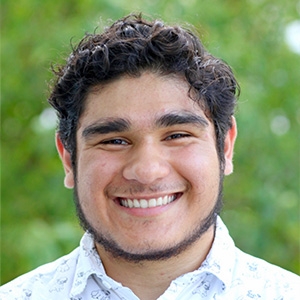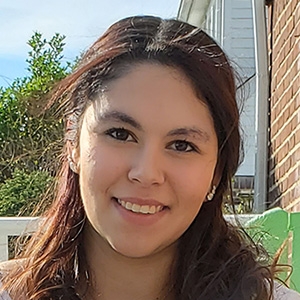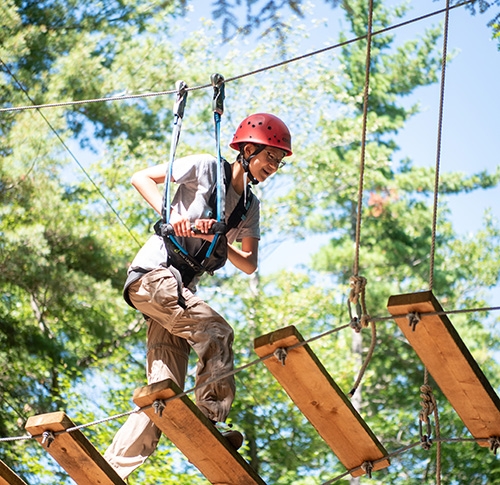College has two parts, equal in value, equal in transformative power.
There’s what you learn in the classroom—soaking up knowledge to succeed academically and professionally, finding your passion and pursuing it, discovering talents you didn’t know you had.
Then there’s what you learn everywhere else—in your residence hall, at that job downtown, at your first solo medical appointment, on a club committee, when your car won't start, on adventures with friends.
Both parts are vitally important to a student’s all-around growth. Which is why Union has started rolling out a new residential curriculum called U Journey.
"I’m a big advocate for change and trying new things. It keeps life fresh and exciting, and it gives me something to look forward to,” said Jacob Hernandez '25, a computer science major and residence advisor. "U Journey is a substantial shift from how things were done last year. The emphasis on residential life makes me hopeful for a great year ahead because of how it focuses on the development of the student and how they learn to live in a community.

U Journey: What is it?
“If you look at Union’s Strategic Plan, there’s a significant focus on student life outside the classroom. To differentiate our experience and, quite honestly, to develop our students beyond that of other college students, Union decided to go in the direction of a residential curriculum,” said Ryan Keytack, assistant vice president for student affairs, campus & community living & learning. “Through a robust suite of residential programming, intentionally designed to nurture the whole individual, Union students will develop the life skills necessary to succeed in a complex global society.”
“U Journey is specifically designed to help students understand their responsibilities within a community and understand how to better foster meaningful relationships with others,” he added.
Why design it this way? Because all of college’s lessons—within and beyond the classroom—shape us into who we are and help us forge paths ahead.
“A residential experience is a transitional period between a more structured high school framework and post-collegiate independence,” Keytack said. “It is imperative that students become independent and learn and understand all the processes needed to successfully conduct themselves and navigate daily living in their current and future environments.”

How U Journey works
To accomplish this goal of developing the whole individual, U Journey takes an intentional approach to how students fill their discretionary time. As President David Harris explained during Convocation Sept. 6, there are six areas of focus: well-being, life skills, decision-making, cross-cultural competency, belonging and reflection.
“The full Union experience is achieved when life outside the classroom complements life inside the classroom,” he said. To that end, the College is rolling out U Journey over the next several years. It will enhance leadership and program offerings, and build up experiential learning and travel opportunities.
Phase 1 began this fall with Union’s newest students, the Class of 2026. Phase 2 (2023-24) will expand U Journey to sophomore, junior and senior classes; develop a programming series; establish a new speaker series and create a winter term trip. Phase 3 (2024-25) will involve an assessment of U Journey.
“Students are at different places at different times, and we want to meet them exactly where they are. We will have a bigger focus on skill development during the first year and then shift to more a la carte learning opportunities for our more independent upper class students,” Keytack said. “The first year focuses on transitions, connections, sense of belonging and social responsibility. Year two shifts to academic exploration, career exploration, leadership and relationship building.”
“The upper class years examine independence, civic responsibility, global perspectives and personal vision,” he added. “We couldn’t do any of this without the residence advisors (RAs) playing their important facilitator role.”

Important RAs
In the past, RAs focused heavily on incident response, facilities management and building community. Under U Journey, they will do less with the first two and more with community development.
“RAs also planned programs based on what I like to call the wellness wheel. They did events from scratch and focused on general topics like diversity and health,” Keytack explained. “Our professional staff in Student Affairs is now leading the charge. They are working with the RAs and campus offices to offer new options like socials, micro-courses, workshops, directed dialogues and peer mentorship.”
For instance, this winter, the Class of 2026 will be watching a variety of short videos featuring their peers.
“These videos provide an understanding of skills needed to navigate social, academic, financial and ‘home’ life,”Keytack said. “Topics include laundry and work orders, time management, sharing spaces, cooking/fire safety, assertiveness in communication, stress management and money management.”
To expand U Journey’s reach and seamlessly weave it into the entire undergraduate experience, the Office of Student Affairs also assigned core development themes for each week of fall term for new students. The first week was all about getting acquainted and involved, while subsequent weeks focused on living in a diverse community and engaging Schenectady.
“Having peers share their advice and stories (both the ups and downs) teaches resilience and motivates students to the finish line,” Keytack said. “Some of our topics are best explored peer to peer as well. The informal chat with an RA versus an office visit with a dean just feels different and has a different kind of impact.”
“It only makes sense to capitalize on RA savvy and resonance with their peers,” he added. “They’re much cooler than me.”
As one of these cool RAs, Alexa Gonzalez ’24 is excited about her role. Now in her second year as an RA, she is a biomedical engineering major with an organizing theme minor (studying the development of what society considers deviant individuals).
“I had a difficult first year because I started right in the middle of the pandemic,” she said. “For me, being an RA allowed me to step outside my comfort zone, meet new people and help them have a better experience than I had my first year.”
“I’m looking forward to being part of U Journey. I love being a part of ResLife and getting to know all of the incoming students,” Gonzalez added. “Anything I can do to make their transition easier, I will gladly be a part of.”

